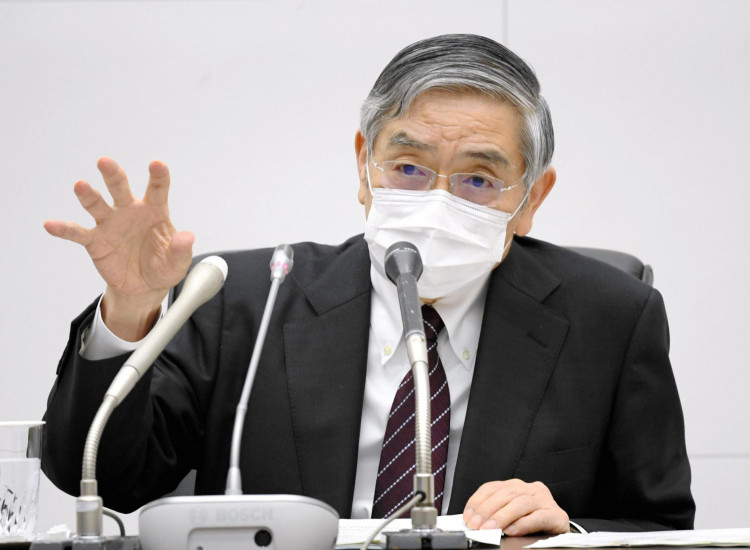The Bank of Japan said it would buy as many government bonds as it wants to and jacked up corporate debt acquisitions, bringing more stimulus after a national state of emergency declaration sparked further shutdowns and raised the requirement for monetary assistance at struggling companies.
Through abandoning the guideline to increase government debt by about 80 trillion yen ($743 billion) per year, the BOJ now has no purchasing caps at a time when the government is issuing new bonds to aid record stimulus.
The move brings the bank in connection with other key finance institutions that have released massive volumes of financial aid as the ongoing global health crisis stirs worries of a deep worldwide economic distress.
The central bank also reduced its economic outlook, and projected inflation will fall well short of its 3-year target of 2 percent, indicating that its near-term emphasis would be on fighting the crisis.
The spread of the virus locally and abroad has a serious effect on the economy of Japan, BOJ Governor Haruhiko Kuroda disclosed in a media conference following the policy meeting.
Asia Pacific markets rose on Monday following news of the decision by the BOJ to boost monetary easing. Japanese stocks led to gains in the region's major markets, while the Nikkei 225 fell 2.71 percent to close at 19,783.22.
Robot manufacturer Fanuc's shares were down 11.95 percent after the company's financial results for the year ended March 2020 were announced. Also the Topix index advanced 1.83 percent to finish its trading day at 1.447.25.
Just before the 80 trillion yen (S$1.06 trillion) limit on government bond purchases was lifted, purchases made by the Bank of Japan were far below the target, Taro Saito, senior economist at NLI Research Institute, said.
The BOJ also revised down growth estimates for the world's third-largest economy in a quarterly economic report published on Monday.
It now predicts the economy would contract 3.0-5.0 percent for the current fiscal year to March 2021, compared to the previous estimate of 0.8-1.1 percent growth.
Governor Haruhiko Kuroda insisted that the move explained its constructive, active attitude towards buying government debt and vowed that the central bank would do all it could to support an economy facing a bigger hit than the ill effects from the global financial crisis. The BOJ chief denied the bank was merely supporting government debt.
Meanwhile, Chinese stocks rose on the day, with the Shanghai composite advancing 0.25 percent to around 2.815.49, while the Shenzhen composite weakened fractionally to around 1.738.05. As of its final trading hour, Hong Kong's Hang Seng index also jumped around 1.9 percent.





